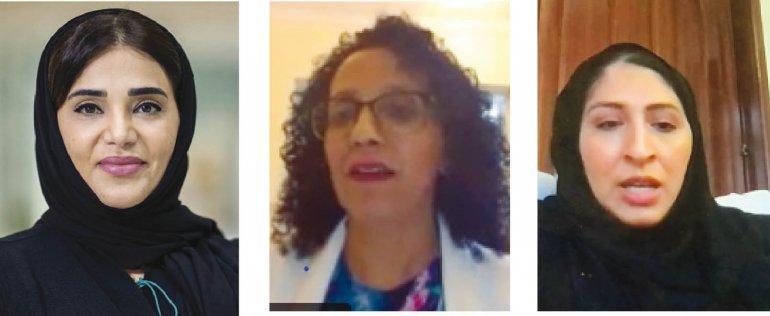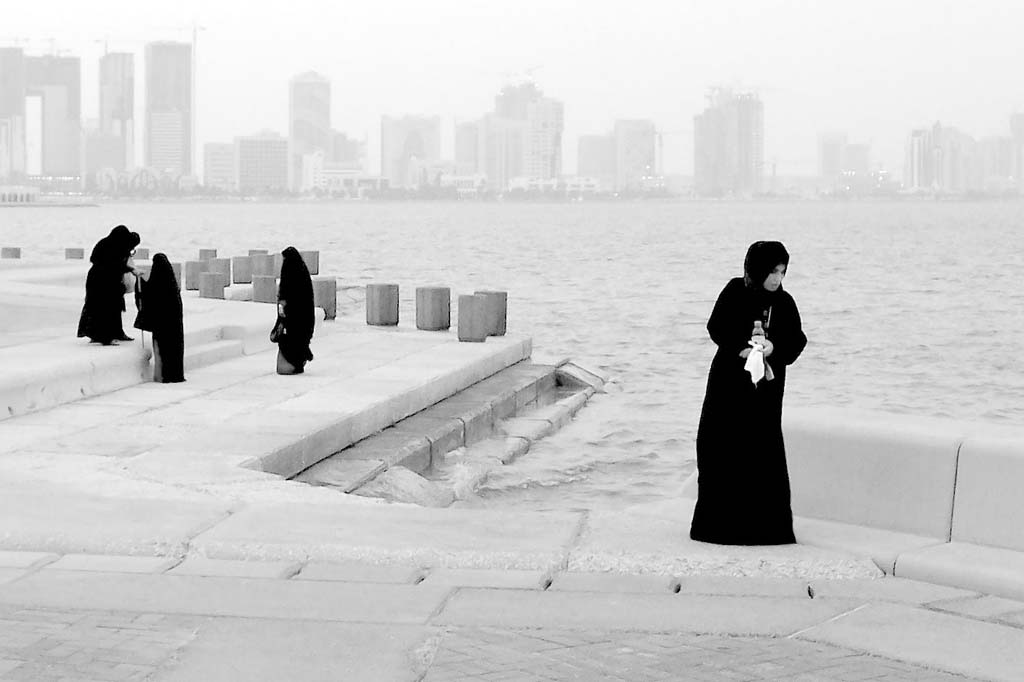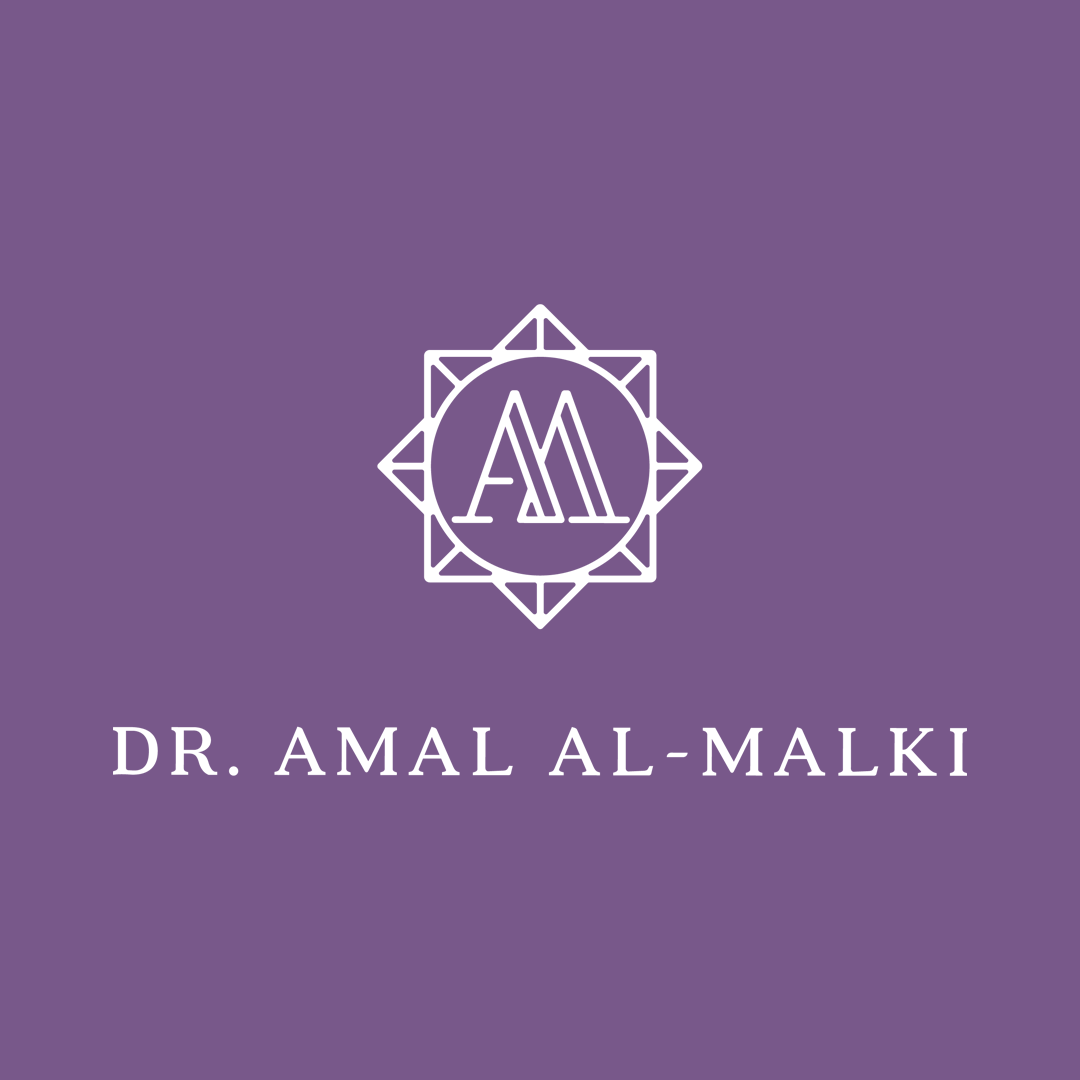A university professor born to a Qatari father and a Lebanese mother has be…

The Peninsula
Doha: The first meeting for Qatar Forum for Female Engineers recently took place virtually. Over half of the Forum’s 80 registered members, representing various sectors in the State of Qatar, attended the event. The meeting included the opening speech by the Forum’s Chairperson, Dr. Hanan Farhat, and the Vice-Chairperson, Eng. Abeer Buhelaiqa.
Aysha Al Mudahka, Director of Strategic Initiative and Partnership Development at Qatar Foundation’s CEO’s office, praised this important initiative to enhance capabilities, job opportunities, and development for Qatar’s female engineers. Two leading female figures in Qatar delivered keynote speeches, Dr. Amal Al Maliki, Founding Dean of the College of Humanities and Social Sciences at Hamad Bin Khalifa University, and Dr. Buthaina Al Ansari, an expert in strategic development and human resources at Beacon Consulting and one of the influential women in the Middle East.
Dr. Al Malki’s talk focused on the challenges that women in Qatar face. “It is easy to find bright, successful examples if we look at other Arab women and their stories, yet every country has its distinctive history, culture, and sociopolitical characteristics that shape the stories of its women. Our countries in the Arabian Gulf are unique and different from other Arab countries. As a cultural entity, it has been most resistant to change. The case in Qatar is a reflection of that with its developing climate that is in constant negotiation in terms of gender identity and gender parity and what it means to the existing cultural and religious structures,” Al Malki said.
“Qatari women now enjoy somehow equal opportunities in both education and employment, and this is being translated into laws and regulations that are and hopefully will continue to be set to protect such rights.”
Al Malki emphasised Qatar Foundation’s support for a thriving climate that connects education, community, and decision and policy-makers.
“The number of female graduates across Education City has increased dramatically, feeding the job market and more importantly providing new career areas with the first women employees. For example, in Texas A&M-Qatar, 46 percent of the student body are women, and 51.6 percent of undergraduate engineers are women,” she said.
On the other hand, Dr. Al Ansari focused on the development and the importance of empowering women. She stressed the importance of Qatar’s indicators, numbers, and advanced centers from the sustainable development goals in developing major projects, as the numbers and indicators indicate the quality of services provided to the individual and society.
She discussed the comparison between equality and justice to empower women socially, economically, and legally to become partners for men in developing society and providing women with skills and proper education and equal opportunities in positions, elections, and promotions in the labour market. She talked about the importance of developing and updating human resources policies, including working hours, promotions strategy in the career ladder, the maternity leave period, training, and development methodology. These policies should focus on women’s leadership skills, including communication skills, negotiation skills, decision-making skills, and team building.
Dr. Hanan Farhat, the Chairperson of the Forum, who worked in the oil and gas industry for over 25 years before joining Qatar Foundation, said, “Establishing this Forum dates back to 2019, when we noticed that a large number of women, who have obtained an engineering degree find it difficult to get engineering jobs, especially engineering field positions. Several of these women leave the workforce within the first three years of employment. This raised an alarm, especially that women are half of the workforce in the country, who should be empowered and strengthened.”
Engineer Abeer Buhelaiqa, Vice-Chairperson of the Forum, an active member in the oil and gas sector, said, “The Forum’s vision is to inspire and empower female engineers as leaders in the engineering field.”
Doha: The first meeting for Qatar Forum for Female Engineers recently took place virtually. Over half of the Forum’s 80 registered members, representing various sectors in the State of Qatar, attended the event. The meeting included the opening speech by the Forum’s Chairperson, Dr. Hanan Farhat, and the Vice-Chairperson, Eng. Abeer Buhelaiqa.
Aysha Al Mudahka, Director of Strategic Initiative and Partnership Development at Qatar Foundation’s CEO’s office, praised this important initiative to enhance capabilities, job opportunities, and development for Qatar’s female engineers. Two leading female figures in Qatar delivered keynote speeches, Dr. Amal Al Maliki, Founding Dean of the College of Humanities and Social Sciences at Hamad Bin Khalifa University, and Dr. Buthaina Al Ansari, an expert in strategic development and human resources at Beacon Consulting and one of the influential women in the Middle East.
Dr. Al Malki’s talk focused on the challenges that women in Qatar face. “It is easy to find bright, successful examples if we look at other Arab women and their stories, yet every country has its distinctive history, culture, and sociopolitical characteristics that shape the stories of its women. Our countries in the Arabian Gulf are unique and different from other Arab countries. As a cultural entity, it has been most resistant to change. The case in Qatar is a reflection of that with its developing climate that is in constant negotiation in terms of gender identity and gender parity and what it means to the existing cultural and religious structures,” Al Malki said.
“Qatari women now enjoy somehow equal opportunities in both education and employment, and this is being translated into laws and regulations that are and hopefully will continue to be set to protect such rights.”
Al Malki emphasised Qatar Foundation’s support for a thriving climate that connects education, community, and decision and policy-makers.
“The number of female graduates across Education City has increased dramatically, feeding the job market and more importantly providing new career areas with the first women employees. For example, in Texas A&M-Qatar, 46 percent of the student body are women, and 51.6 percent of undergraduate engineers are women,” she said.
On the other hand, Dr. Al Ansari focused on the development and the importance of empowering women. She stressed the importance of Qatar’s indicators, numbers, and advanced centers from the sustainable development goals in developing major projects, as the numbers and indicators indicate the quality of services provided to the individual and society.
She discussed the comparison between equality and justice to empower women socially, economically, and legally to become partners for men in developing society and providing women with skills and proper education and equal opportunities in positions, elections, and promotions in the labour market. She talked about the importance of developing and updating human resources policies, including working hours, promotions strategy in the career ladder, the maternity leave period, training, and development methodology. These policies should focus on women’s leadership skills, including communication skills, negotiation skills, decision-making skills, and team building.
Dr. Hanan Farhat, the Chairperson of the Forum, who worked in the oil and gas industry for over 25 years before joining Qatar Foundation, said, “Establishing this Forum dates back to 2019, when we noticed that a large number of women, who have obtained an engineering degree find it difficult to get engineering jobs, especially engineering field positions. Several of these women leave the workforce within the first three years of employment. This raised an alarm, especially that women are half of the workforce in the country, who should be empowered and strengthened.”
Engineer Abeer Buhelaiqa, Vice-Chairperson of the Forum, an active member in the oil and gas sector, said, “The Forum’s vision is to inspire and empower female engineers as leaders in the engineering field.”
Link to the article
You may also check
Here Amal Al-Malki reflects on how women have been represented in pop culture from the region, touching on f…


